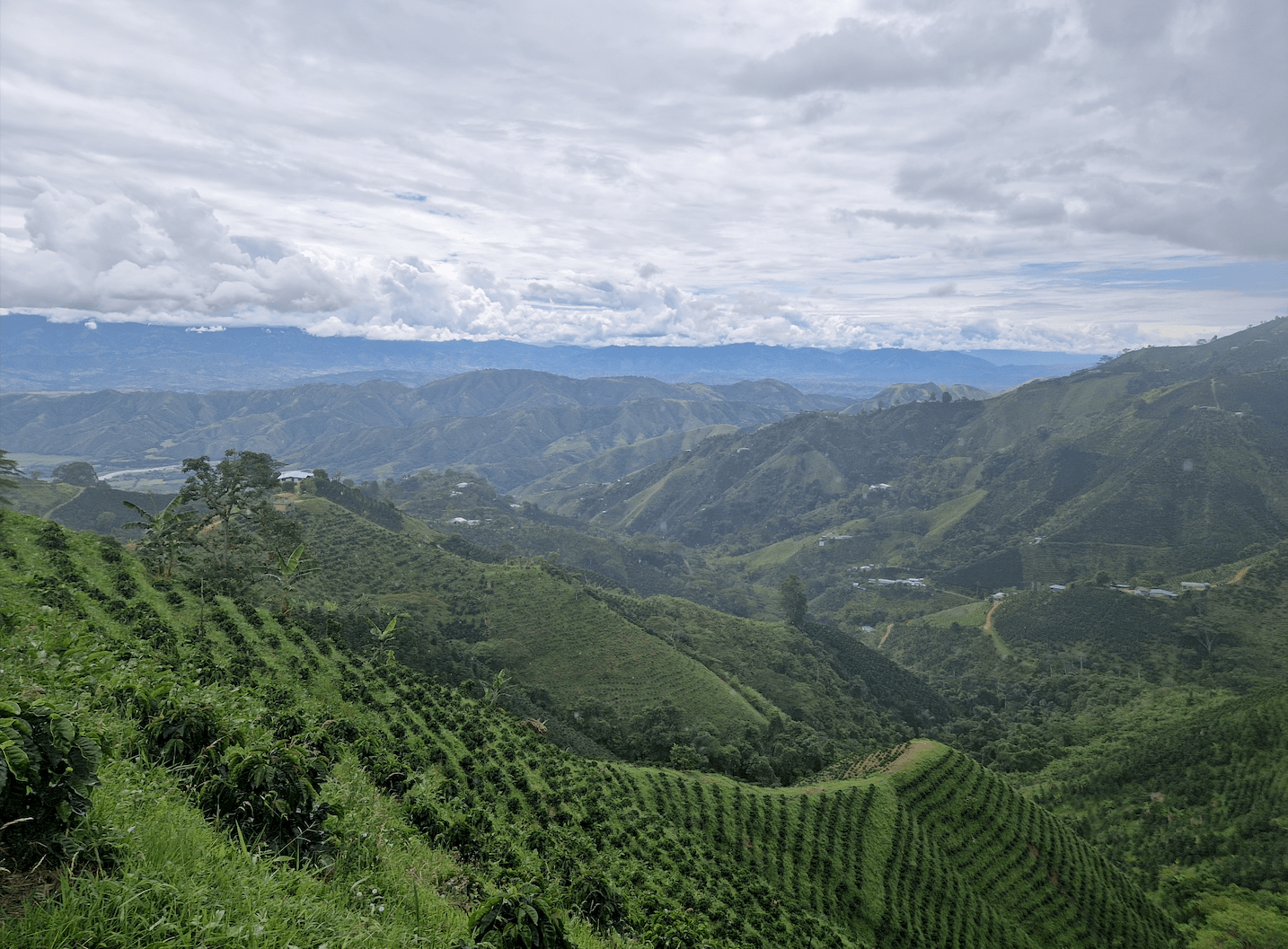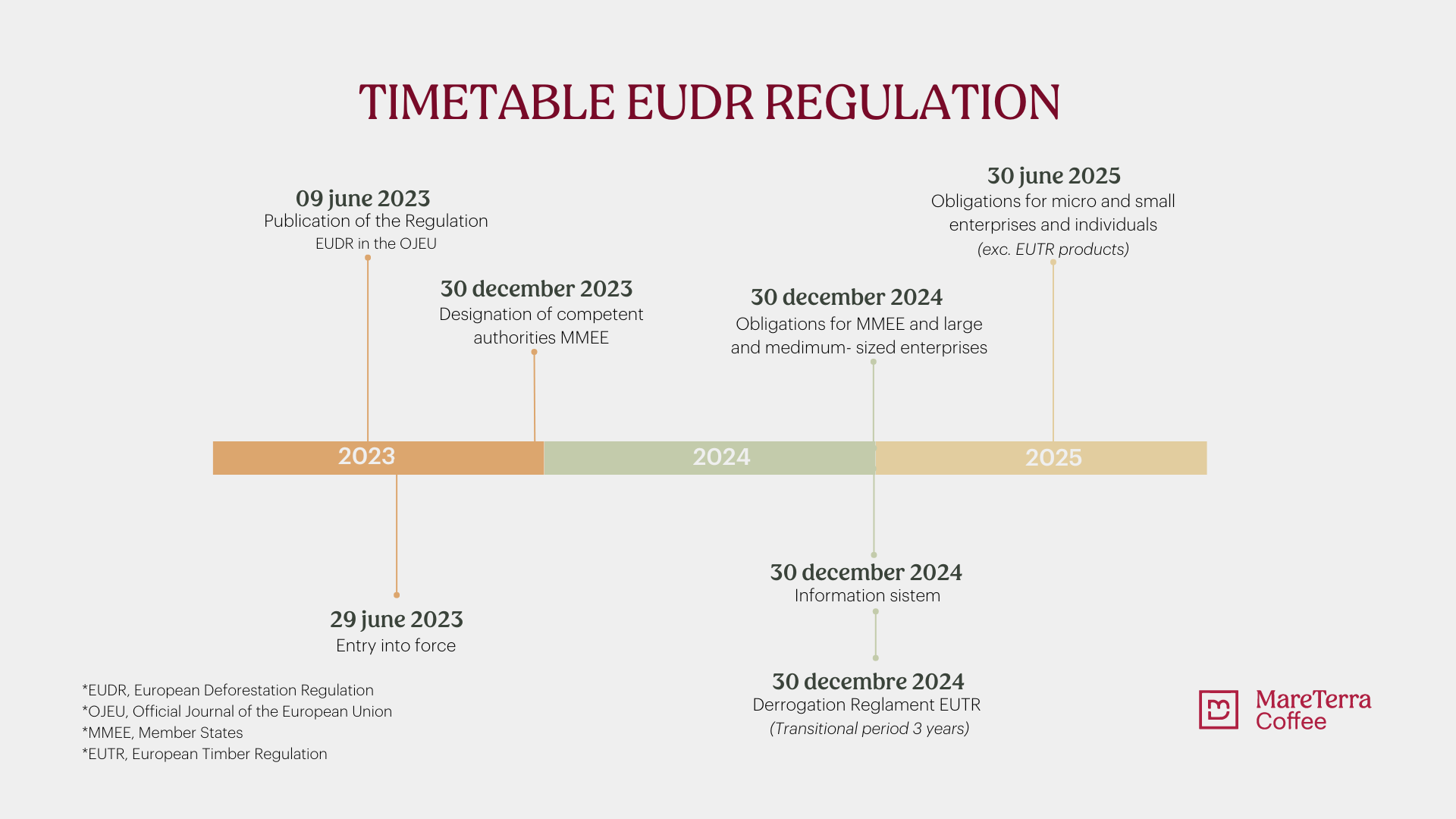

Deforestation and forest degradation are advancing at an alarming rate. The Food and Agriculture Organization of the United Nations (FAO) estimated that between 1990 and 2020, 420 million hectares of forest were lost worldwide (about 10% of the world’s remaining forests, equivalent to an area larger than the European Union).
Deforestation and forest degradation are significant contributors to global warming and biodiversity loss, and two of the most critical environmental challenges of our time.
The world is continuing to lose 10 million hectares of forest each year, and are severely affected by climate change. We are at the critical point where action is needed.
In 2019 the Commission adopted several initiatives to address the global environmental crisis. To combat deforestation and forest degradation, and impement necessary measures to prevent biodiversity loss.
Among these initiatives, the EU established the EUDR Regulation, the European Regulation on Deforestation-Free Products. Below are the dates of various actions on this timeline:

This regulation governs the introduction and marketing within the European Union market, as well as export outside of it, of certain specified products that contain or have been produced using relevant raw materials. These products include: Beef, Cocoa, Coffee, Palm oil, Soy, Timber, Rubber and their derived products.
Therefore, this regulation impacts both customs-related commercial operations and operations within the internal market. The specified products cannot be introduced, marketed, or exported unless they meet three conditions:
They are free from deforestation.
They have been produced in accordance with the relevant legislation of the country of production.
They are covered by a Due Diligence Declaration (DDD)
One of the key requirements is the obligation for Operators (those involved in the implementation) to avoid supplying raw materials or products that are not free from deforestation or that have not been produced in accordance with the relevant legislation of the country of production.
Companies that introduce products into (or export from) the EU (referred to as Operators under the regulation) are required to implement a Due Diligence system. This involves conducting risk assessments and mitigating any non-negligible risks before introducing products into (or exporting from) the EU market.
Operators are also obliged to publicly report annually, as widely as possible, and include online their Due Diligence system and the measures they have taken to ensure compliance with their obligations.
Companies classified as Traders in the regulation (those trading products already introduced into the EU market) are responsible for storing and sharing information (with competent national authorities upon request) related to their supply chains.
Large traders, *those that are not small or medium-sized enterprises (SMEs) are also required to conduct due diligence. This is because of the level of influence they exert over supply chains.
The supply chain of coffee is subject to this Regulation, including both green coffee and transformed products such as roasted or decaffeinated coffee, husks, and coffee substitutes.
However, soluble coffee is not currently included.
What happens if the coffee being marketed or exported is not compliant?
If competent authorities confirm that coffee being introduced into the EU is not compliant, they will notify the customs authorities, who will then not authorize the release for free circulation or the export of the product.
Implementation of the new regulation will begin on December 30, 2024, for large companies and by June 30 for micro-enterprises and small businesses.
Our deadline will commence in June 2025.
Objectives regarding Data Transmission
The European Commission is tasked with developing and publishing an electronic interface for Customs to facilitate data transmission and have the Due Diligence Declaration before import or export. The interface must be operational no later than June 30, 2028, and will enable:
Operators and traders to fulfill the obligation of submitting the Due Diligence Declaration.
Transmission of this Due Diligence Declaration in the information system.
Our Goals
We are in contact with our suppliers and will begin collecting necessary information from all of them as soon as possible. We will classify this information so that by the end of 2024, when the information system containing Due Diligence Declarations is established, we can register it.
We expect the European Commission to launch the electronic interface to start requesting regulatory requirements from suppliers and adding them to the platform.